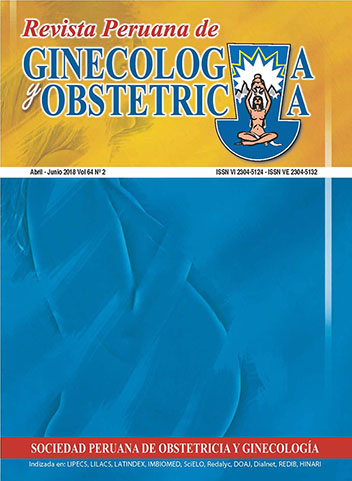What is the effect of the recent definitions of arterial hypertension in the adult on the diagnosis and management of this condition during pregnancy and hipertensive disorders of pregnancy?
DOI:
https://doi.org/10.31403/rpgo.v64i2079Abstract
The American College of Cardiology (ACC) and the American Heart Association (AHA)issued new guidelines for the prevention, detection, evaluation and management of hypertension in the adult based on a comprehensive systematic review of the existing literature by an expert review committee in 2017. In the ACC/AHA definitions, arterial hypertension is divided into stage 1 (systolic blood pressure (SBP) 130-139 mm Hg) and diastolic blood pressure (DBP) 80-89 mm Hg) and stage 2 (SBP ≥ 140 mm Hg and DBP ≥ 90 mm Hg). The primary objectives of ACC/AHA are early detection of the disease, prompt evaluation, opportune management, and prevention of cardiovascular disease. With these changes, it is estimated that the prevalence of hypertension will increase between 15-20% in the United States (US) in the forthcoming years. There will also be a considerable increase in the number of women who will conceive with a diagnosis of hypertension. Updates on the classification of pregestational and gestational hypertensive conditions by professional organizations such as the American College of Obstetricians & Gynecologists (ACOG) have not yet been released, but can be expected sometime soon. In the meantime, we should continue following existing standardized guidelines. In the US, it is common clinical practice to follow the 2013 ACOG guidelines on classification, prediction, and management of hypertension in pregnancy. These define hypertension as blood pressure values over ≥ 140/90 mm Hg. ACOG recommends a BP target < 160/105 mmHg for all types of hypertension. Tight BP control < 140/90 mmHg should be attempted in patients with comorbidities such as diabetes or end-organ damage. For other patients, this clinical approach is currently not recommended, given the lack of evidence of benefits and the potential negative effects on placental vascular perfusion and fetal growth. It is expected that the ongoing multicenter pragmatic clinical trial conducted in the US (ClinicalTrials. gov Identifier: NCT02299414) will elucidate whether tight blood pressure control in women with chronic hypertension improves maternal and perinatal outcomes. Until then, obstetricians should continue following the recommendations by the ACOG or other professional organizations for all types of hypertensive disorders and be alert about new notifications from these organizations or experts in the topic.Downloads
Download data is not yet available.
Downloads
Published
2018-07-16
How to Cite
Mateus, J. (2018). What is the effect of the recent definitions of arterial hypertension in the adult on the diagnosis and management of this condition during pregnancy and hipertensive disorders of pregnancy?. The Peruvian Journal of Gynecology and Obstetrics, 64(2), 205–209. https://doi.org/10.31403/rpgo.v64i2079
Issue
Section
Simposio: Redefinición de la hipertensión arterial
















